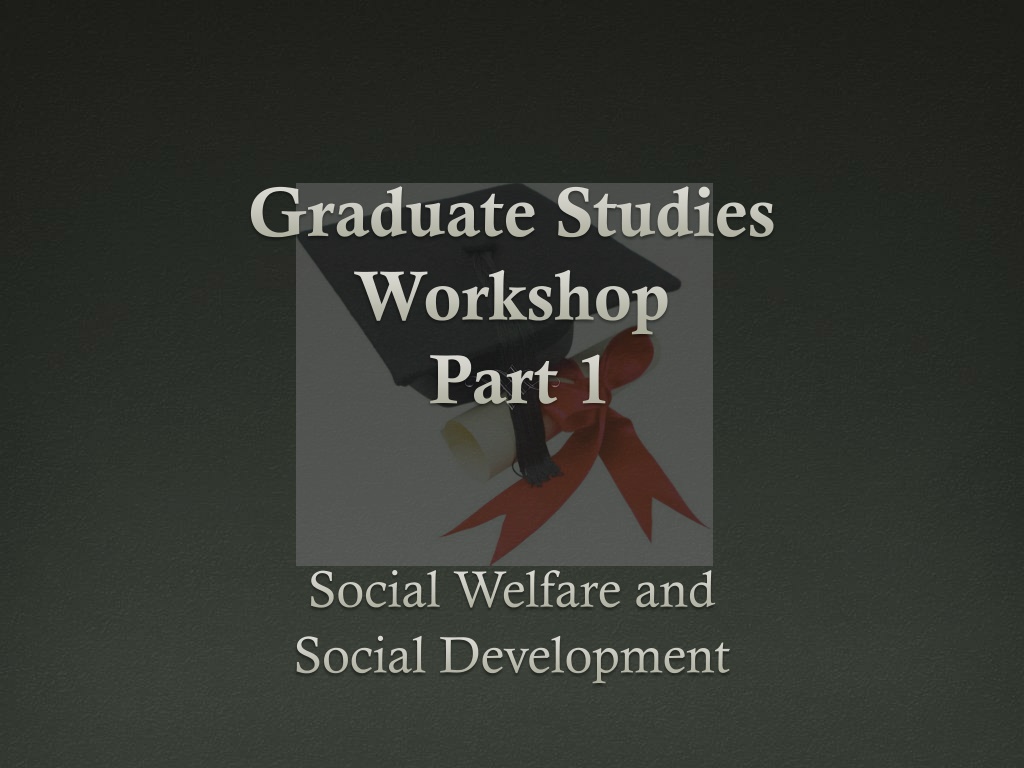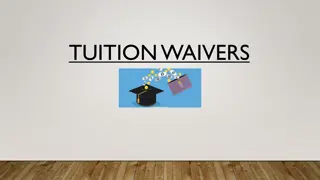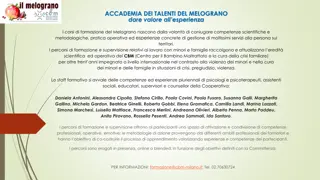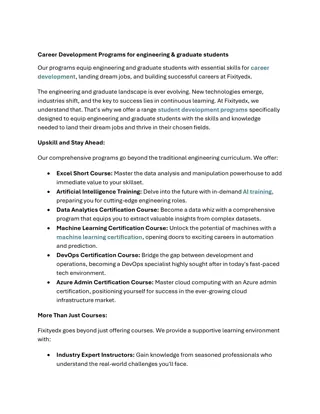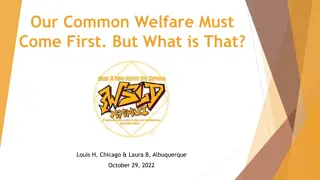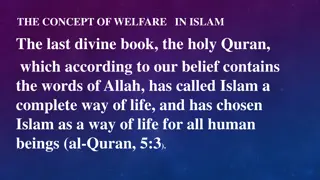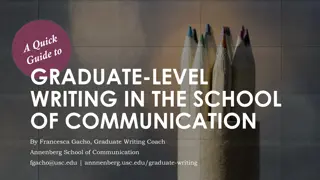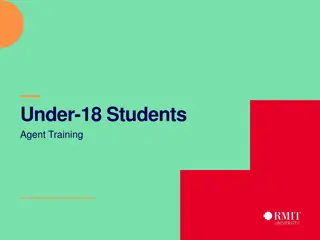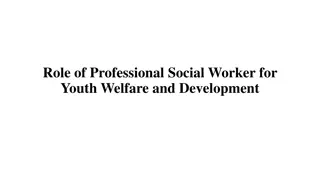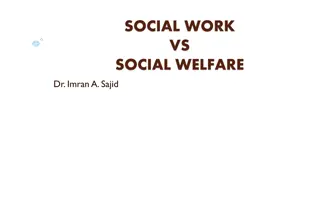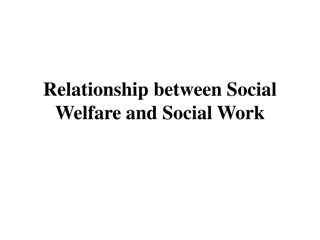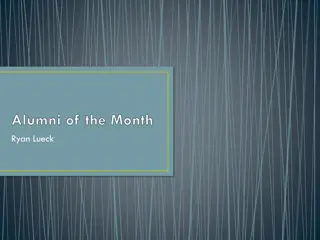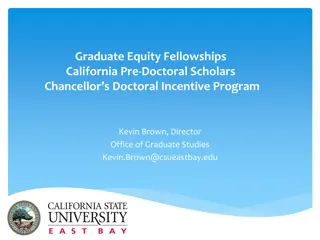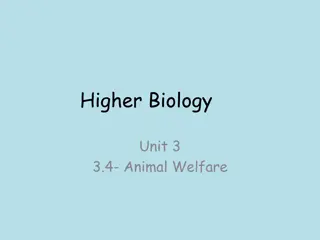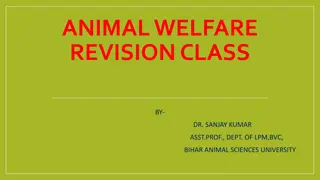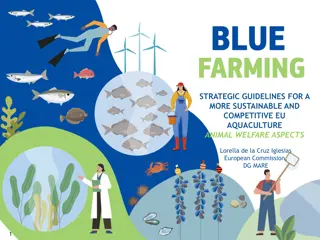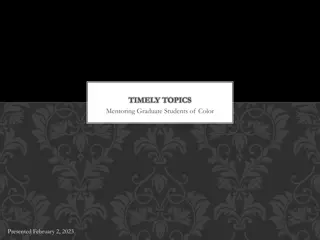Understanding Graduate Studies in Social Welfare and Social Development
This presentation covers essential information about pursuing a Master's Degree in Social Welfare and Social Development. It explains the differences between undergraduate and graduate studies, types of programs available, application processes, reasons to pursue an MA, and financial aspects related to funding graduate studies.
Download Presentation

Please find below an Image/Link to download the presentation.
The content on the website is provided AS IS for your information and personal use only. It may not be sold, licensed, or shared on other websites without obtaining consent from the author. Download presentation by click this link. If you encounter any issues during the download, it is possible that the publisher has removed the file from their server.
E N D
Presentation Transcript
Graduate Studies Workshop Part 1 Social Welfare and Social Development
1. What is a Masters Degree? 2
Differences from Undergraduate Studies Fewer courses each semester Much more reading and writing You choose classes, professors, supervisors, and committees 3
Types of Programmes Format 1: Coursework only Format 2: Coursework plus Major Research Paper (MRP) Format 3: Coursework plus Master s Thesis Some MA degrees take two years to complete Most MA degrees take only one year (or slightly more) to complete 4
Getting Ready to Apply for an MA You should decide which programs you want to apply to during the summer following your third year of undergraduate studies MA applications and scholarship applications are due early in the autumn. Please give your professors at least two weeks to prepare your letters of reference. 6
Why Should You Do an MA? 1. Financial advantage (earn more money): Canada 2005-2009 (Statistics Canada) College graduate $35,000 Bachelor Master s Doctoral $45,000 $60,000 $65,000 2. Better job opportunities, future promotion 3. Lower unemployment rate 4. Shows you are dedicated enough to set your sights on a tough goal and attain it. 8
How Can I Afford to Do This? You can get scholarship funding to do an MA You may also pay for your MA by becoming a research assistant or a teacher assistant 10
Government of Canada Funding The Canada Graduate Scholarships Master s Program (CGS M) supports 2,500 students every year. http://www.nserc-crsng.gc.ca/Students- Etudiants/CGSHarmonization-HarmonizationBESC_eng.asp Qualifying Canadian universities receive a CGS M allocation (i.e. a number of students to whom they can award scholarships) Allocations are divided by broad fields of study: 1) health, 2) natural sciences and/or 3) engineering and 4) social sciences and/or humanities 11
Ontario Graduate Scholarships (OGS) https://osap.gov.on.ca/OSAPPortal/en/A-ZListofAid/PRDR013089.html 12
Ontario Graduate Scholarships (OGS) 1) Each university gives awards individually and sets their own deadlines 2) Apply for an OGS at each of the universities you are interested in attending 3) The Graduate Studies Offices at eligible Ontario universities are responsible for administering the OGS Program 13
University Funding University & Programme Scholarships Teaching Assistantships Research Assistantships 14
Typical Funding Package (1) University of Windsor Master s (2014) One year (3 semesters): Graduate Entrance Scholarship: $3,500 NOTE: Must maintain a high academic average (above 80%, or equivalent) Graduate Assistantships: $9,500 Maximum 10 hours per week of work Total = $12,500 15
Typical Funding Package (2) UBC Sociology (2013-14) Year 1: Graduate Entrance Scholarship of $10,000 TA position (max $11,400) Total = $21,400 Year 2: Graduate Scholarship of $5,000 TA position (max $11,400) Total = $16,400 16
4. Where Should I Go? www.nipissingu.ca/socialwelfare/MAprograms 17
5. Graduate Studies Workshop Part 2 18
Graduate Studies Workshop Part 2 The following topics will be covered: The Application Process Statement of Purpose Letters of Reference Sample of Written Work 19
Good Luck! 20
